The best 5 exercises for when you're feeling stressed out
You may be wondering, what's the real deal between stress and exercise? How can moving around actually help me feel less stressed?
Life can sometimes feel like a juggling act, can't it? Balancing work duties, home responsibilities, and finding time for ourselves. You're not alone. We all feel stressed sometimes. A little bit of stress can help us get things done, but too much can cause problems. It can make us feel worried, keep us up at night, and even make us sick.
But don't worry, we have a solution! And it's simple: exercise. You don't need to become a gym expert or run a marathon. Just moving more can help lower stress. Exercise can make us feel happier and healthier, both in our bodies and our minds.
In this article, we're going to talk about the best exercises to do when you're feeling stressed. We'll explain how each one works and give you tips for how to do them. Whether you're new to exercise or you've been doing it for a while, there's something for everyone.
Are you ready to say goodbye to stress and hello to feeling great? Let's get started!
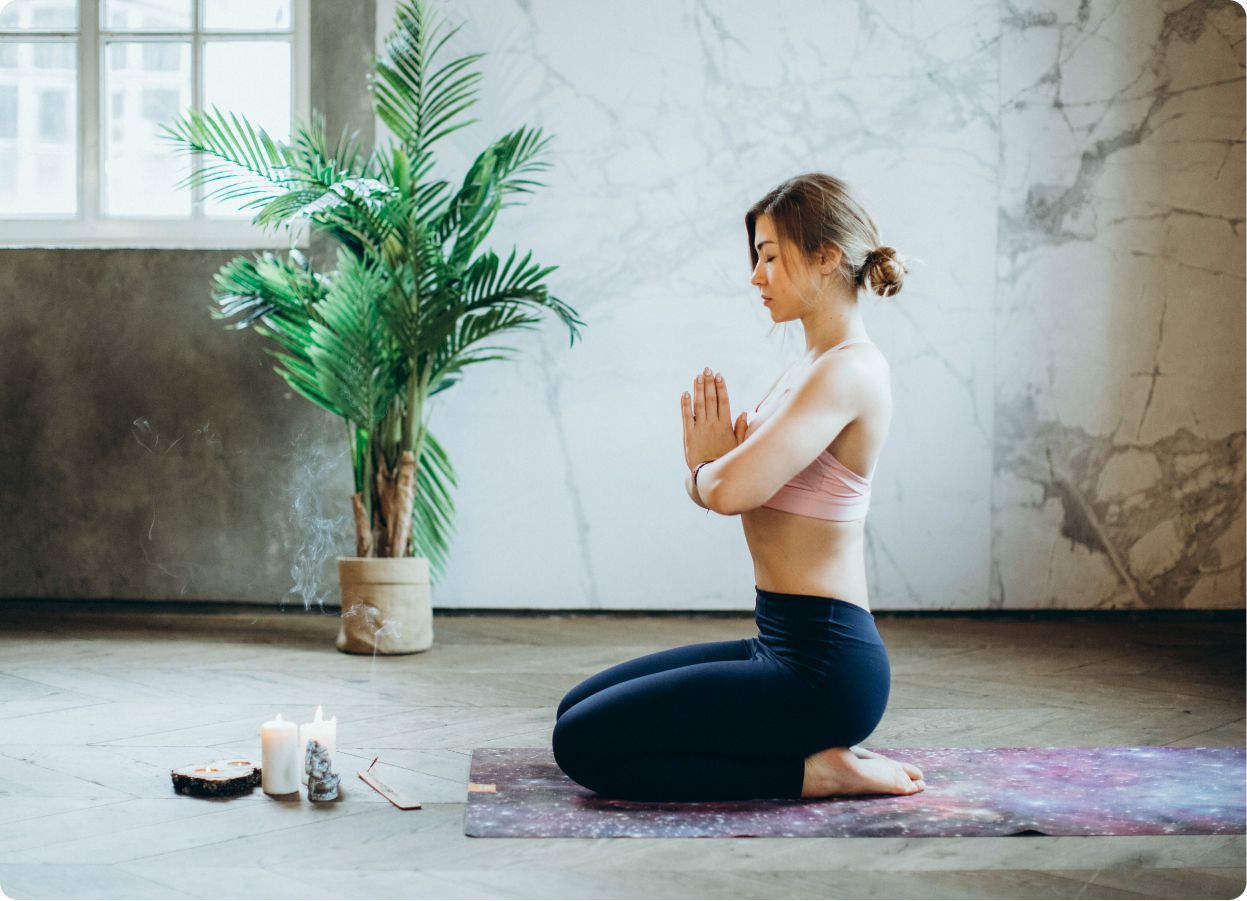
Source: Pexels
The relationship between stress and exercise
So, you may be wondering, what's the real deal between stress and exercise? How can moving around actually help me feel less stressed? Let's break it down together.
First off, it's important to understand what stress really does to your body. Imagine you're in a scary situation - let's say you're walking in the woods, and you suddenly see a bear (yikes!). Your body's immediate response is what we call the 'fight or flight' response.
Your heart rate shoots up, your muscles tense, and your body prepares to either fight or run away. Now, in our daily lives, we're not typically encountering bears (hopefully), but stressors like work pressure, relationship issues, or financial worries can trigger a similar response.
Over time, if we're constantly in 'fight or flight' mode, it can take a toll on our bodies and minds. This is where exercise steps in like a superhero. When we exercise, we're essentially giving that pent-up energy somewhere to go.
Our heart rate goes up in a healthy way, our muscles get to flex and move, and most importantly, our brains get a sweet dose of endorphins, those awesome chemicals that act like natural mood lifters. The result? We feel better, more relaxed, and yes, less stressed!
But that's not all. Regular exercise can also help you sleep better, improve your confidence, and even give you a break from worrying thoughts. Ever gone for a brisk walk when you're upset, or lost yourself in a dance class? Then you know what we're talking about. Exercise can be a great way to shift your focus and give your mind a much-needed break.
What's cool is that you don't have to be an Olympian to reap these benefits. Whether it's a short jog around the block, a yoga session in your living room, or a fun dance-off with your kids, all physical activity can help reduce stress.
So, ready to shake off that stress? Let's get into the best exercises you can do to help you chill out and feel great. Stick with us - you've got this!
Top 5 exercises for stress relief
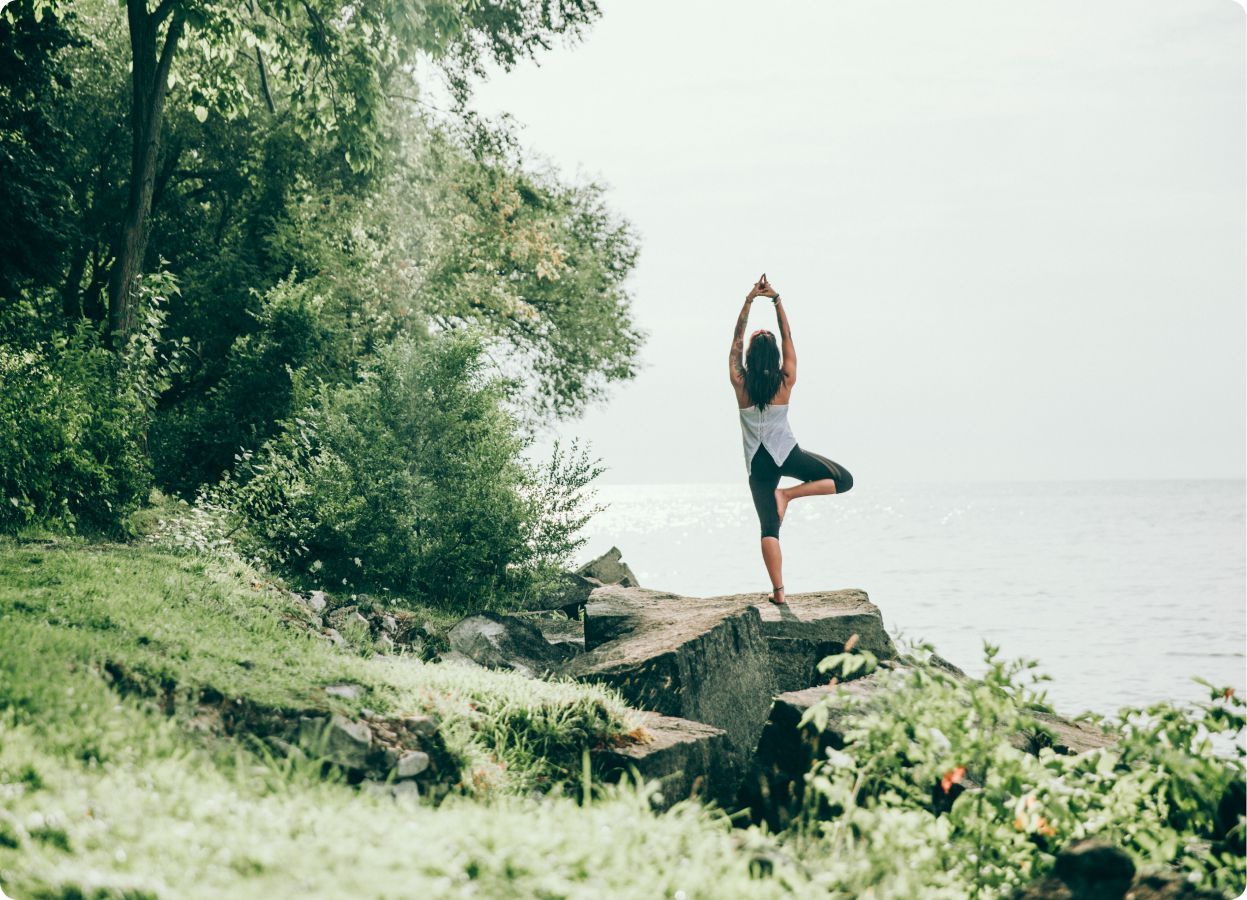
Source: burst.shopify
1. Yoga
Yoga is not just an exercise; it's a practice that engages both the body and the mind. Its combination of physical postures, controlled breathing, and meditation or relaxation makes it an effective tool for managing stress.
When you're practising yoga, you're encouraged to focus less on the hustle and bustle of your day and more on the moment - on your breath and the way your body feels. This present-focus can act as a natural stress reliever, diverting your mind away from daily worries.
The physical benefits of yoga, such as improved flexibility, strength, and balance, also contribute to alleviating stress. As you gradually improve these physical aspects, you're likely to feel a sense of achievement and confidence that helps counter feelings of stress.
There are several yoga poses that can specifically help with stress relief. Here are a few:
Child's Pose (Balasana): This restful pose helps quiet the mind, eases stress and anxiety, and gently stretches the back.
Downward-Facing Dog (Adho Mukha Svanasana): This pose is an excellent stress-buster and can also alleviate headaches, insomnia and back pain, which can all be symptoms of stress.
Tree Pose (Vrikshasana): This pose can help you feel grounded and balanced, which can help reduce stress.
Corpse Pose (Savasana): Often used for relaxation at the end of a yoga practice, this pose can relax your body and help reduce stress and anxiety.
The beauty of yoga is that it's accessible to everyone, no matter their fitness level. It's a practice that encourages self-care and mindfulness, both of which are beneficial when managing stress. It's not about perfection, but about the journey of connecting with yourself in a deeper and more meaningful way, ultimately helping you manage stress more effectively.
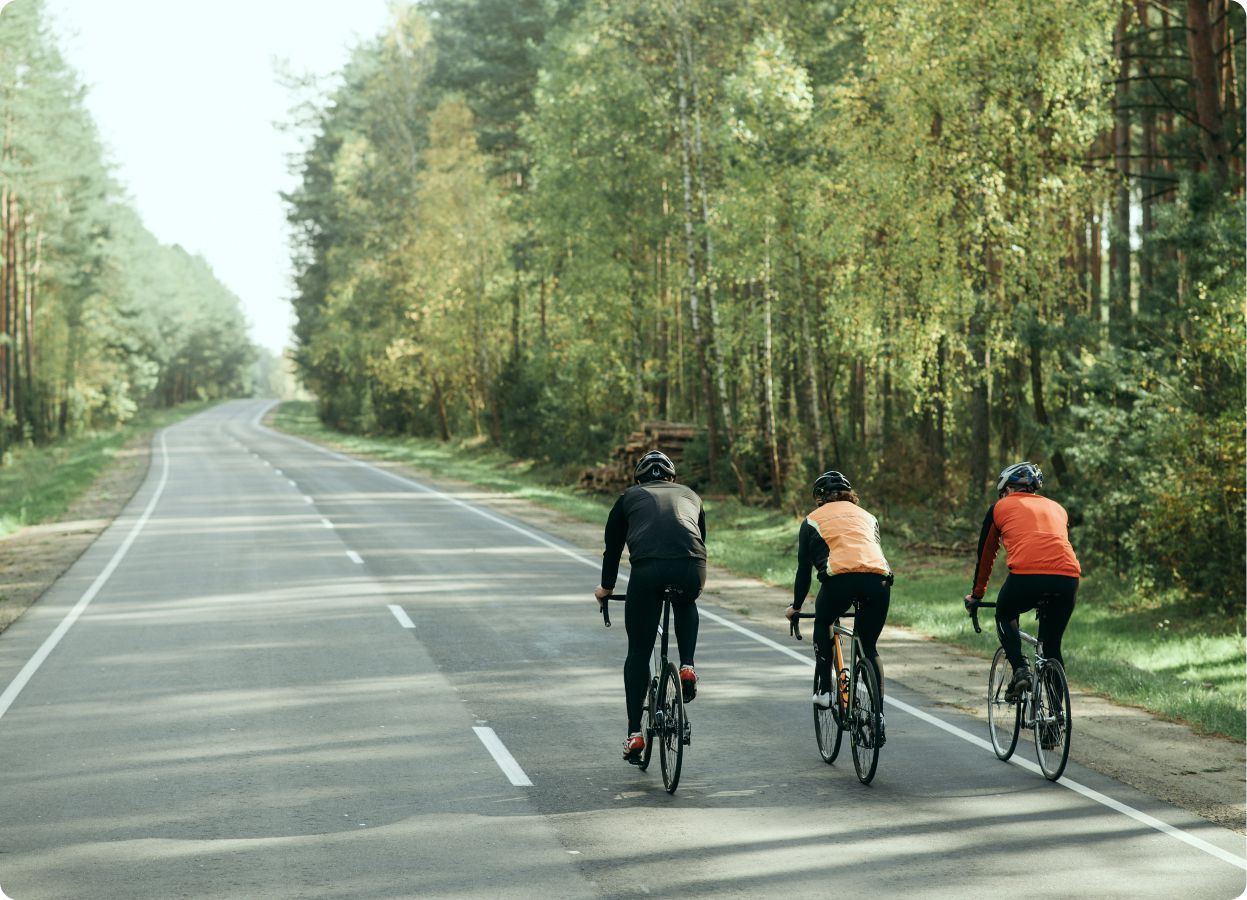
Source: Pexels
2. Aerobic Exercise (Running, Cycling, Swimming)
Aerobic exercises, like running, cycling, and swimming, are all about getting your heart pumping and your blood flowing. Not only are these exercises great for physical health - strengthening the heart, improving lung capacity, and aiding weight loss - they're also powerful tools against stress.
When you participate in aerobic exercise, your body releases endorphins, the so-called 'feel-good hormones'. These endorphins can create a sense of euphoria often referred to as the 'runner's high'. They can also help combat stress, alleviate anxiety, and boost your overall mood. So, essentially, aerobic exercises are like a natural mood-booster shot.
Let's break down each exercise:
Running: Running is a versatile form of exercise that you can do almost anywhere. Whether it's a quick jog around the block, a long-distance run, or sprint intervals, running helps clear the mind, reduces tension, and improves sleep, all of which can help tackle stress.
Cycling: Cycling, whether done outdoors or on a stationary bike, is a great way to take your mind off worries. Focusing on the rhythm of your pedalling and feeling the wind (if you're outdoors) can be very therapeutic. Plus, cycling is a low-impact exercise, so it's gentle on the joints.
Swimming: Swimming is unique because it combines the benefits of aerobic exercise with a soothing, meditative aspect due to the rhythmic nature of the strokes and the calming effect of being in water. It's a total-body workout that leaves you feeling refreshed and relaxed.
Remember, the key is consistency. It doesn't matter if you can't run a marathon or swim like an Olympian. What's important is moving at a pace that's comfortable for you and sticking to a regular routine. So pick the exercise that you enjoy the most and make it a part of your lifestyle - your body and mind will thank you!
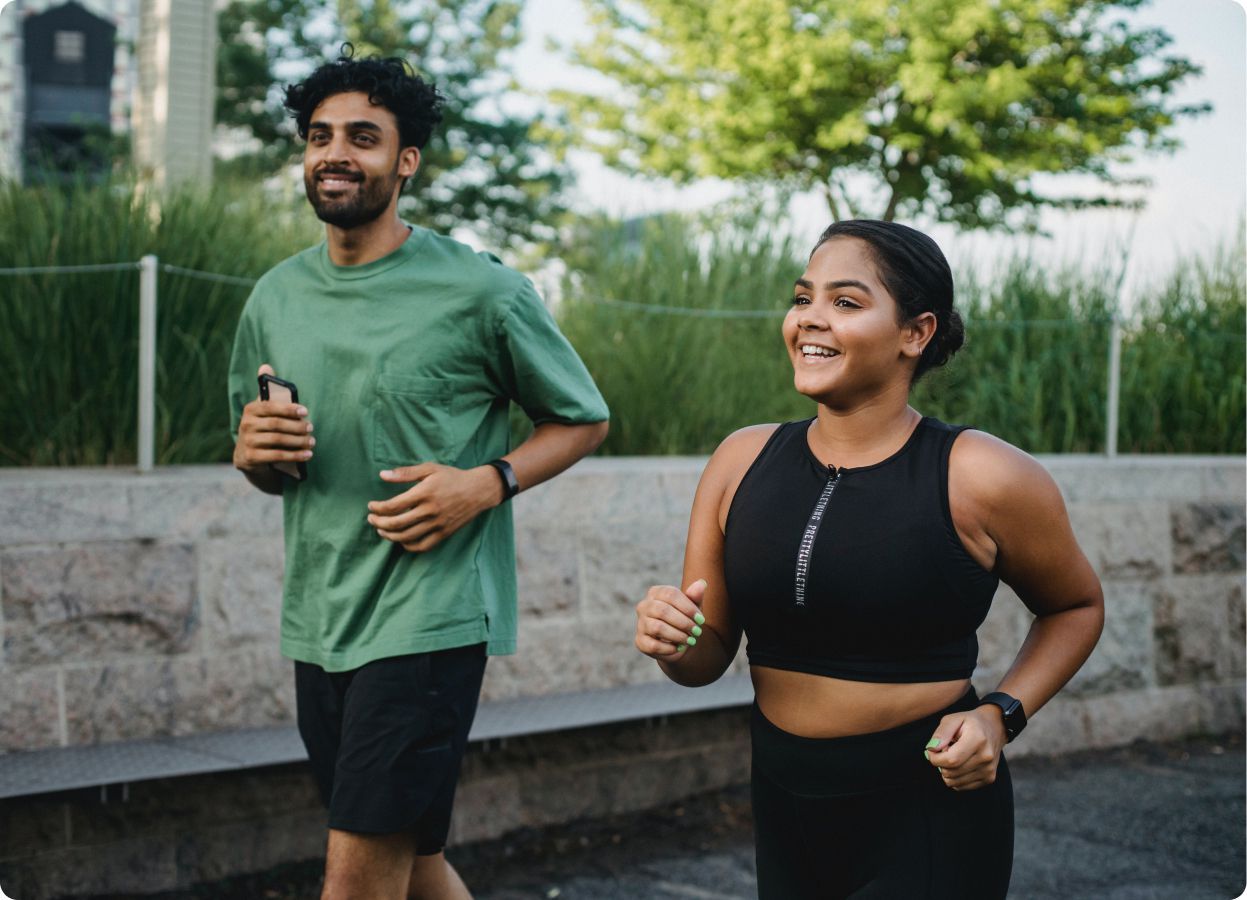
Source: Pexels
3. High-Intensity Interval Training (HIIT)
High-Intensity Interval Training, better known as HIIT, has quickly become a favourite among fitness enthusiasts, and for good reason. It's a type of workout where you give all-out, 100% effort in quick, intense bursts of exercise, followed by short recovery periods. This type of training gets your heart rate up and burns more fat in less time, making it an efficient way to exercise.
But what about stress? Can a high-intensity workout really help you chill out? The answer is yes! Here's how.
First off, HIIT workouts are great for producing endorphins - those fantastic mood-boosting chemicals we talked about earlier. Because HIIT pushes you to your limit (in a good way), your body churns out endorphins to help you power through. The result? A flood of feel-good vibes that can leave you feeling exhilarated and happy post-workout.
Second, HIIT workouts can also be a form of active meditation. When you're focused on giving your all in those intense intervals, there's not much room for worrying about your to-do list or that email you need to send. This total focus can help you break away from stressors, even if it's just for a short while.
Finally, one of the great things about HIIT is that it's quick. Many HIIT workouts can be done in less than 30 minutes. This is a game-changer for those of us who feel stressed about not having enough time to exercise. With HIIT, you can squeeze in a workout on your lunch break or before dinner, and still reap the stress-busting benefits.
To give you an idea, a simple HIIT workout might look like this:
- Warm-up for 5 minutes.
- Sprint for 3 minutes.
- Walk or jog for 15 minutes.
- Repeat the sprint and recovery cycle for 15-20 minutes.
- Cool down for 15 minutes.
Start with what's comfortable for you and adjust as your fitness improves. You can perform HIIT workouts with various exercises including running, cycling, bodyweight exercises, and more. Remember, the key is to alternate between periods of high-intensity effort and short recovery periods.
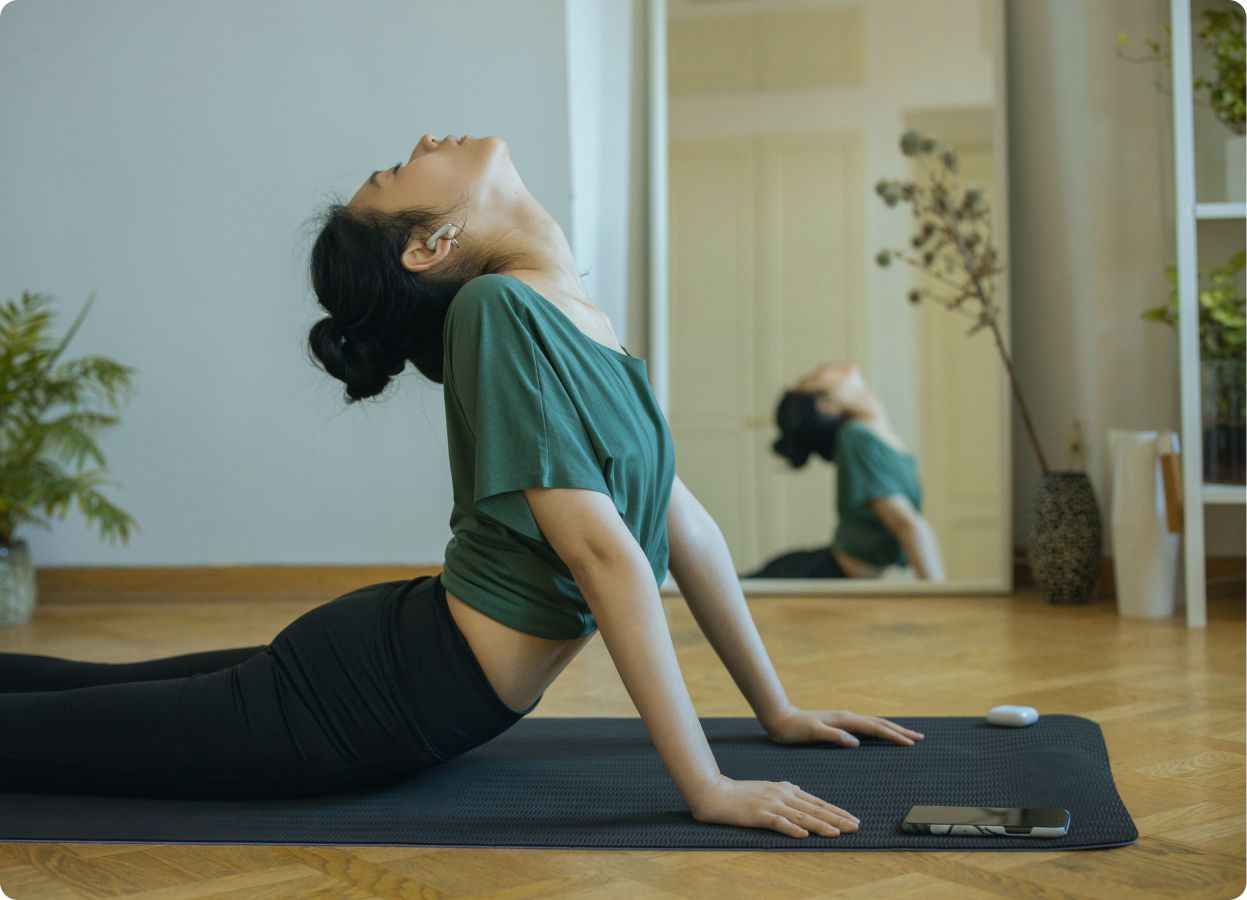
Source: Pexels
4. Pilates
Pilates might not be the first thing that springs to mind when you think about stress-busting exercises, but it's a method worth considering. Pilates is a low-impact exercise that focuses on flexibility, core strength, and overall body awareness, making it a wonderful option for stress relief.
First and foremost, Pilates requires concentration. This means that for the duration of your session, you're focusing on your body's movements rather than that long list of tasks awaiting your attention. This concentrated focus can act as a form of moving meditation, helping to quiet your mind and reduce stress.
Pilates also encourages deep, controlled breathing, a fundamental aspect of many stress-relief methods. Breathing exercises are known to help lower heart rate, promote relaxation, and reduce feelings of stress and anxiety. In Pilates, your breath guides each movement, reinforcing this calming and mindful approach to exercise.
Furthermore, Pilates is excellent for improving posture. As we strengthen our core and become more aware of our body alignment, our posture improves. Good posture can help reduce muscle tension and pain often associated with long hours spent sitting at a desk - a physical manifestation of stress for many.
A typical Pilates workout might involve a series of movements performed on a mat or using specialised equipment, targeting various muscle groups but always engaging the core. Exercises like the Pilates Hundred, the Roll-Up, and the Scissor are part of the traditional Pilates repertoire and can be easily incorporated into your routine.
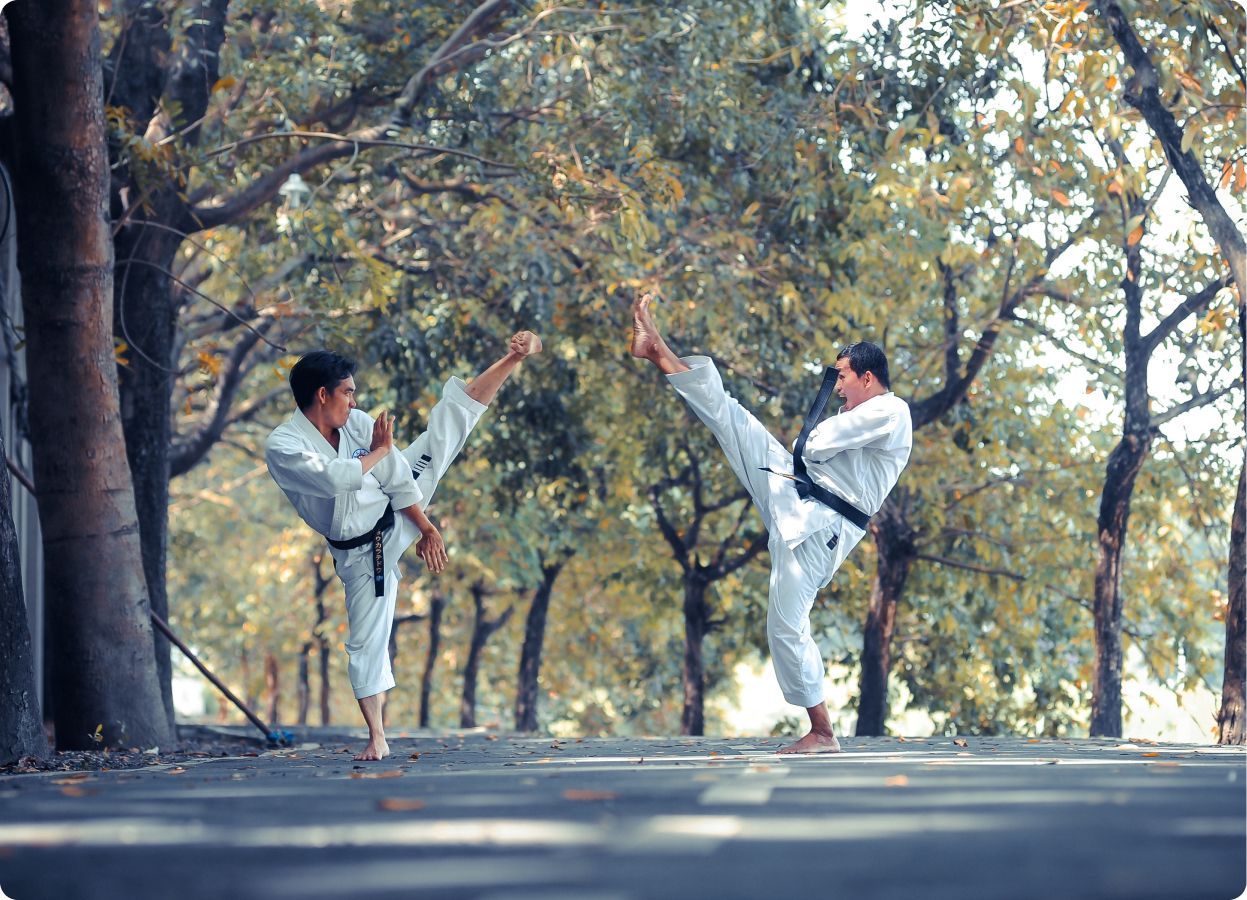
Source: Unsplash
5. Martial Arts
First off, let's clear one thing up: martial arts isn't all about high-flying kicks and fierce punches. Sure, there's a physical side to it, but it's also about discipline, focus, and inner peace. In fact, many forms of martial arts are rooted in ancient philosophies that value balance, control, and harmony.
When you're practising martial arts, you're engaging both your body and mind. The physical movements can give you a fantastic, endorphin-boosting workout. You know, those awesome 'feel-good' chemicals we keep talking about! But there's also a big focus on mindfulness, concentration, and breathing techniques, which can help you feel more centred and calm.
Think about it like this: while you're trying to nail a particular move or technique, there's not a lot of room in your brain to worry about tomorrow's big meeting or that pile of laundry waiting for you at home. It's a bit like hitting the 'mute' button on your stress.
And there's such a variety of martial arts out there! From karate to taekwondo, judo to Brazilian jiu-jitsu, there's something for everyone. Some, like tai chi, put more emphasis on slow, controlled movements and deep breathing. Others, like kickboxing or muay thai, are more high-intensity and can provide a great outlet if you're feeling pent up or frustrated.
Whatever form you choose, martial arts can be a great way to boost your self-esteem, too. There's nothing quite like the feeling of mastering a new move or earning that next belt to make you feel like you can take on the world!
Conclusion
Well, there you have it! You now have a toolbox full of exercises ready to help you combat stress. And the beauty of it? These are not only good for when stress levels rise, but they're also fantastic habits to include in your daily life to keep stress at bay.
Remember, it's not about eliminating stress completely – that's pretty much impossible, and hey, a little stress can sometimes be a good thing! It's all about how we manage it.
Now, don't feel like you need to become a yoga master, an Olympic runner, or a black belt in martial arts by tomorrow afternoon. We know we've covered a lot, but the key here isn't to do everything.
It's about trying different things and finding what works best for you. Maybe it's a brisk walk during your lunch break. Perhaps it's a yoga session in your living room on Saturday mornings. Or it could be a kickboxing class that helps you blow off steam after a tough day.
And remember, exercise is just one piece of the stress-busting puzzle. Don't forget to take care of your mind, too. Maybe that means taking a few minutes each day to meditate, keeping a gratitude journal, or chatting with a friend over coffee.
For those who are interested in further improving their health and well-being by doing regular physical activities, consider joining a fitness class that uses a convenient and user-friendly fitness management software like Rezeve.
Rezeve makes it easy to manage your class schedules, track your progress, and communicate with instructors. With its user-friendly interface, you can access your fitness information from anywhere and at any time, making it an effortless way to manage your health and well-being.
Friska 🐨
Read next: Mental health benefits of exercise in a physical fitness class
Do you want to see more content like this? Follow us on Instagram and Facebook for more wellness advice, fitness trends, workout inspiration, and even best health and fitness deals exclusive to our followers. Don’t miss out!

